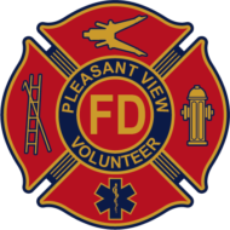Requesting attendance and pre-registration for:
Pipeline Security for Rural Communities, PVVFD Station 1, August 2nd or 3rd, request for students
-Links for sign up (it’s on the flyer, but also at:)
-Sat Aug 2nd
https://docs.google.com/forms/d/e/1FAIpQLSclk32LMjaAV4LwJJxHTUor1hkm_OCbyHwg5TUWol_GMSV8Cw/viewform
-Sun Aug 3rd
https://docs.google.com/forms/d/e/1FAIpQLSe2Nr8EBuWo5m05DlP1wjw4gJ44ld60V86hQQPROmILGp-a6w/viewform
See attached and below. POC for local questions is PVVFD FF Kevin Quigley, quigleyk@pvvfd.org
Details:
-Pipeline Security for Rural Communities
-No cost
-Dates will be EITHER Saturday 02 August or Sunday 03 August. We have the instructors for both days.
-Times will be 0800-1700 each day.
-This course does provide a certification of completion/training.
-Deadline for folks to sign up is July 19th and 20th.
-Students ONLY HAVE TO ATTEND ONE DAY.
----- More Info Below -----
“This 8-hour, tuition-free training opportunity is provided by The University of
Findlay's All Hazards Training Center (AHTC) on behalf of The Center for Rural
Development (CRD), the U.S. Department of Transportation (DOT), and the
Pipeline and Hazardous Materials Safety Administration (DOT PHMSA). The
purpose of this awareness-level, instructor-led course is to bring together rural
pipeline security stakeholders including public safety, oil and gas pipeline
representatives (large and small), local emergency planners, pertinent federal
agencies, and other community stakeholders to recognize pipeline security
threats and identify mitigation strategies within their jurisdictions to ensure that
the rural pipeline sector is secure and resilient.
The course will include various participant scenario-based activities to ensure
that the nation’s emergency responders are able to work seamlessly with
private industry and the various federal agencies that would respond to an
attack on the nation’s pipeline system. The course objectives will enhance the
participants’ mitigation, response, and recovery capabilities through both
classroom instruction and in scenario-based training activities. This format will
promote greater understanding and collaboration among parties responsible for
pipeline security, and will enhance operational capabilities between the many
partners in response to a rural pipeline security incident.
Topics covered in this course include the following:
Pipeline Components
• Review of Pipeline Security Incidents and Terrorism Against Pipelines
• Regulations and Federal Guidelines Applicable to the Pipeline System
• Current Security Threat Protocols
• Collaborative Response Protocols (Scenario-Based)
Who should attend:
• All First Responders (especially Law Enforcement & Fire Service
Professionals)
• Pipeline Industry Stakeholders
• Community Emergency Management Personnel
• Security Infrastructure Personnel
• Public Works Professionals
POC:
Kevin Quigley
Pleasant View Volunteer Fire Department
quigleyk@pvvfd.org
www.pvvfd.org
